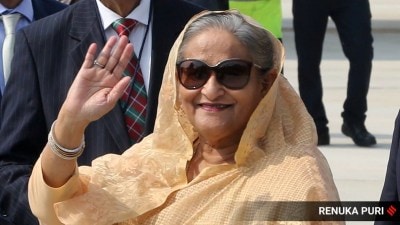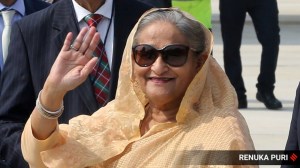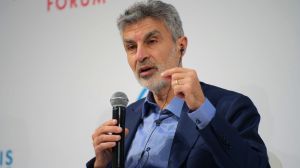China aims to rein in unrealistic growth in car sales
After a decade of nurturing Chinas auto industry to become the largest in the world,this countrys leaders are having second thoughts.
KEITH BRADSHER
After a decade of nurturing Chinas auto industry to become the largest in the world,this countrys leaders are having second thoughts.
A succession of government officials at a weekend conference called for Chinas automakers to shift their focus from making ever more cars and toward producing more fuel-efficient and more advanced models,including gasoline-electric hybrids and all-electric cars.
The government must take the leading role in controlling unrealistic growth of the auto industry,Jiang Kejun,the influential director of the Energy Research Institute at the National Development and Reform Commission,Chinas top economic planning agency,said Sunday during a speech at the conference.
Lu Shize,director of air pollution control at the Ministry of Environmental Protection,echoed Jiang,saying that for the auto industry to develop,we should not try to sell more,but to improve the units sold.
The government officials did not say how they would restrict growth. But growth has already slowed partly because of limits on the number of new cars that can be registered each month in Beijing,and mostly because government incentives expired at the start of this year. Those incentives were subsidies for rural buyers and a two-year reduction in the sales tax on new family vehicles.
The officials remarks strongly suggested that the Chinese auto industrys lobbying for the reinstatement of the incentives would fail and that restrictions on registering new cars would be extended to more cities.
Any slowdown in growth is likely to shock the worlds automakers. Practically every American,European,Japanese and South Korean automaker is expanding in China,including General Motors,Ford Motor,Nissan Motor and PSA Peugeot Citroën. Chinese automakers are building assembly plants even faster.
Years of double-digit expansion have increased Chinese auto production to almost 17 million cars,minivans,pickup trucks and sport utility vehicles last year,from fewer than two million in 2000,making it almost twice the size of the US or Japanese industries and far larger than any European countrys auto manufacturing sector.
Growth in China culminated in a burst of sales in 2009 and 2010 as the government cut taxes on car sales to stimulate the economy during the global economic crisis.
JD Power & Associates,the global consults,estimated last month that China would have a manufacturing capacity of 31 million vehicles by 2013. Yet the domestic market has decelerated sharply this year,with sales of family vehicles up just 5 percent in the first seven months,compared with the period a year earlier. By contrast,sales had soared 33 per cent in 2010,compared with 2009.



- 01
- 02
- 03
- 04
- 05




























